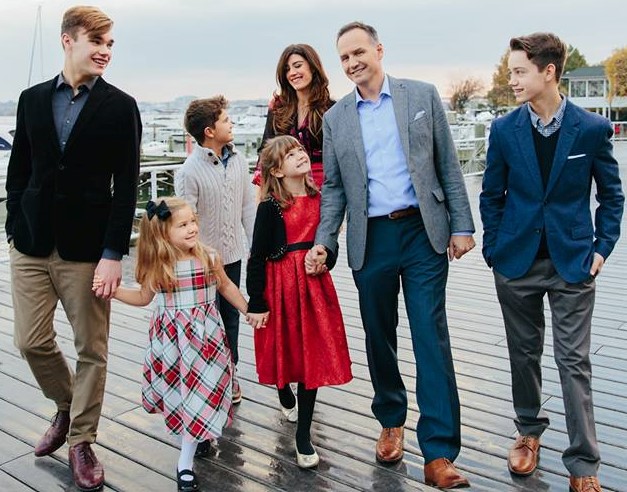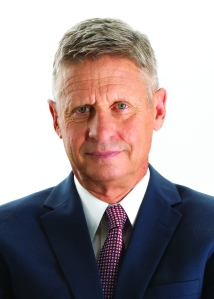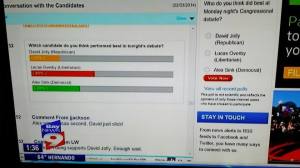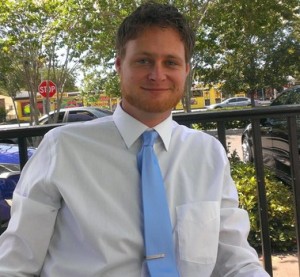Chase Oliver is running to be the Libertarian Party’s nominee for President. At the moment, he is the frontrunner and has managed to appeal to the broadest section of the party’s membership. The Libertarian Party’s convention is being held in Washington, D.C. from May 23rd through May 27th, 2024. Not only does he have majority support within the party, voters outside of the party have said they will happily vote for him at the ballot box in November of 2024 because he appeals to them. Republicans, Democrats, Independents, and yes, libertarians are flocking to the candidate who has the most sensible solutions of any Presidential candidate currently running for President.
So, just who is Chase Oliver? He is a 38-year old Libertarian activist living in the city of Atlanta, Georgia. Dubbed “…the most influential Libertarian in America…” by Rolling Stone Magazine, Chase Oliver is a champion of the rights of the individual against the growing power of the state.
You may remember that Chase Oliver ran as a candidate in Georgia for the U.S. Senate in 2022 against incumbent Raphael Warnock (D) and Herschel Walker (R). One of the highlights of that race was the October 16th Atlanta Press Club debate hosted by Georgia Public Broadcasting in which Chase Oliver and Raphael Warnock took the stage. Herschel Walker was noticeably absent and an empty podium stood in his place. Despite many attempts from Warnock to dismiss his candidacy as irrelevant, Oliver held his own and seemed for many, to be the clear winner of that debate. Receiving just over 81,000 votes, Oliver forced a runoff between Warnock and Walker. During the 2022 campaign, Oliver supported ranked choice voting, which would have eliminated the need for a runoff. Oliver also ran for Congress in the 2020 special election to complete the term of the late civil rights icon John Lewis.
Chase Oliver began his political journey as a Democrat opposing the war in Iraq under President George W. Bush. While attending Atlanta Pride in 2010, Oliver met Georgia Libertarian John Monds, who convinced him that he was a libertarian. He joined the party soon thereafter and the rest, as they say, is history. His strong anti-war roots are still evident today.
Chase Oliver’s platform is the best we’ve seen so far from any presidential candidate. Some of the big issues listed include: immigration, justice reform, ending the failed war on drugs, defending civil liberties, ending wars and supporting peace, respecting individual choice on tough issues, education reform, ranked choice voting and much more. Whether it’s an interview, debate, campaign video update, or one on one with voters, Oliver has no problem discussing his policy views in a way that is easy to comprehend.
Chase Oliver is THE Libertarian candidate earning media attention. He has appeared on FOX Business, CNN, PBS, Reason TV, Vice Media, and countless others. He has been featured in The New York Times, Rolling Stone Magazine, The Washington Post, The Atlanta Journal-Constitution, Bloomberg, The Guardian, and more. He is the first Libertarian Presidential candidate to be invited to the Political Soap Box at the Iowa State Fair. In the past, only Republican and Democrat Presidential candidates were invited to attend the Soap Box. Oliver earned enough media attention and brought in enough donations to catch the eye of Soap Box organizers, and they decided to invite him to take part in the event. His speech to fairgoers that day was one of his best.
By the end of 2023, Chase Oliver will have visited over 40 states. When the national convention rolls around in May of 2024, he will have visited all 50 states. No other Libertarian Party candidate for America’s highest office has ever visited all 50 states.
When the delegates choose the Presidential candidate for the Libertarian Party in May of 2024, they will be selecting the face of the party that the public will see in countless interviews, videos, and personal appearances. The candidate chosen will need to articulate the libertarian position on the issues in a clear and professional manner. We believe that candidate is Chase Oliver.
He is the only serious candidate running to be the Libertarian Party’s nominee, with policy positions that are actually workable in the real world. And he is the only candidate running that can distinguish himself from both Donald Trump (the presumptive GOP nominee) and Joe Biden (the Democrat incumbent).
We believe that Chase Oliver is the best Presidential candidate the Libertarian Party has run to date and we are extremely proud to recommend his candidacy not only to party delegates but to the voters at large. We here at the Old Dominion Libertarian are endorsing Chase Oliver today because we want the Libertarian Party to shine like it never has before.
To get involved with the Chase Oliver campaign or become a delegate and help him win the nomination, you can visit: www.votechaseoliver.com.





 Participating in a “
Participating in a “


